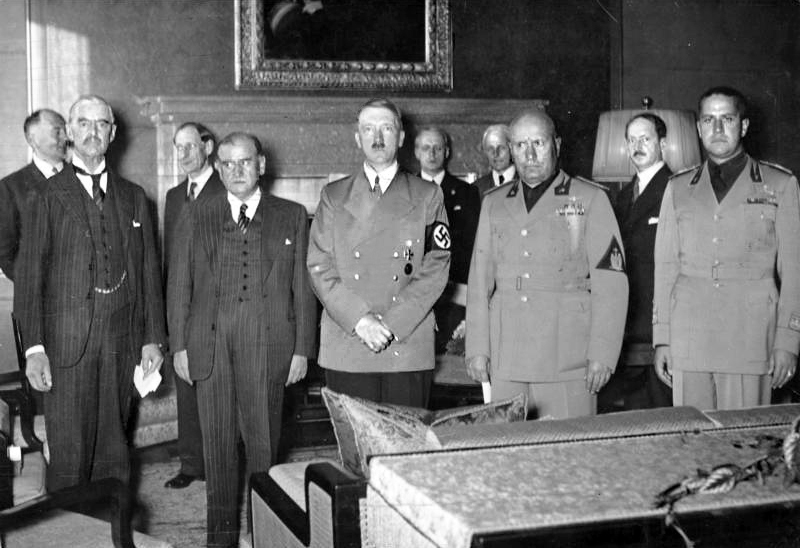The Munich Agreement, signed on September 30, 1938, remains a significant event in world history. It was an attempt to appease Adolf Hitler and prevent the outbreak of another devastating war in Europe. However, the agreement’s ultimate failure to maintain peace serves as a stark reminder of the consequences of appeasement. This article aims to examine the Munich Agreement, its background, key players involved, and the lessons it offers for international diplomacy.
In the years leading up to the Munich Agreement, Europe was grappling with the aftermath of World War I. The Treaty of Versailles imposed harsh conditions on Germany, fueling resentment and leading to the rise of Hitler’s Nazi regime. Hitler’s expansionist ambitions were evident as he sought to incorporate ethnic German territories into the German Reich. The Sudetenland, an area in Czechoslovakia with a significant German-speaking population, became a focal point of tension.
The Munich Agreement involved four main players: Adolf Hitler, the German leader; Neville Chamberlain, the British Prime Minister; Edouard Daladier, the French Prime Minister, and Benito Mussolini, the Italian dictator. Hitler’s aggressive demands for the Sudetenland triggered a diplomatic crisis, leading to negotiations between these leaders.
The Munich Agreement was primarily brokered by Chamberlain, who believed that appeasing Hitler’s territorial demands would maintain peace. The agreement allowed Germany to annex the Sudetenland in exchange for Hitler’s pledge not to pursue further territorial claims. Despite the optimism surrounding the agreement, it proved futile, as Hitler’s ambitions extended beyond the Sudetenland.
- The Danger of Appeasement: The Munich Agreement serves as a cautionary tale about the perils of appeasement in the face of aggression. By appeasing Hitler, the international community inadvertently enabled his expansionist goals, leading to further territorial conquests and ultimately World War II.
- The Munich Agreement demonstrated that yielding to an aggressor’s demands does not guarantee peace. Instead, it emboldens their ambitions and weakens the resolve of those who oppose them. It is crucial for nations to uphold principles and demonstrate a united front against aggression.
- Munich highlighted the limitations of diplomatic negotiations when dealing with a leader driven by radical ideologies and expansionist ambitions. Diplomacy should be pursued, but not at the expense of sacrificing core values or turning a blind eye to potential threats.
- The Munich Agreement revealed the importance of strong and reliable alliances. The lack of a unified response from other European powers weakened their position in dealing with Hitler. International alliances must be nurtured and maintained to effectively address global challenges.
- The Munich Agreement serves as a stark reminder that historical events should be studied and learned from to prevent similar mistakes in the future. It underscores the importance of understanding the root causes of conflicts and the need for proactive measures to address them.
The Munich Agreement stands as a symbol of the dangers of appeasement and the limitations of diplomacy in the face of aggression. It highlights the need for nations to remain vigilant and united against threats to international peace and security. By learning from the mistakes of the past, we can strive to build a more peaceful and secure world. The Munich Agreement remains a powerful reminder of the importance of strong leadership, principled diplomacy, and international cooperation



















Add Comment